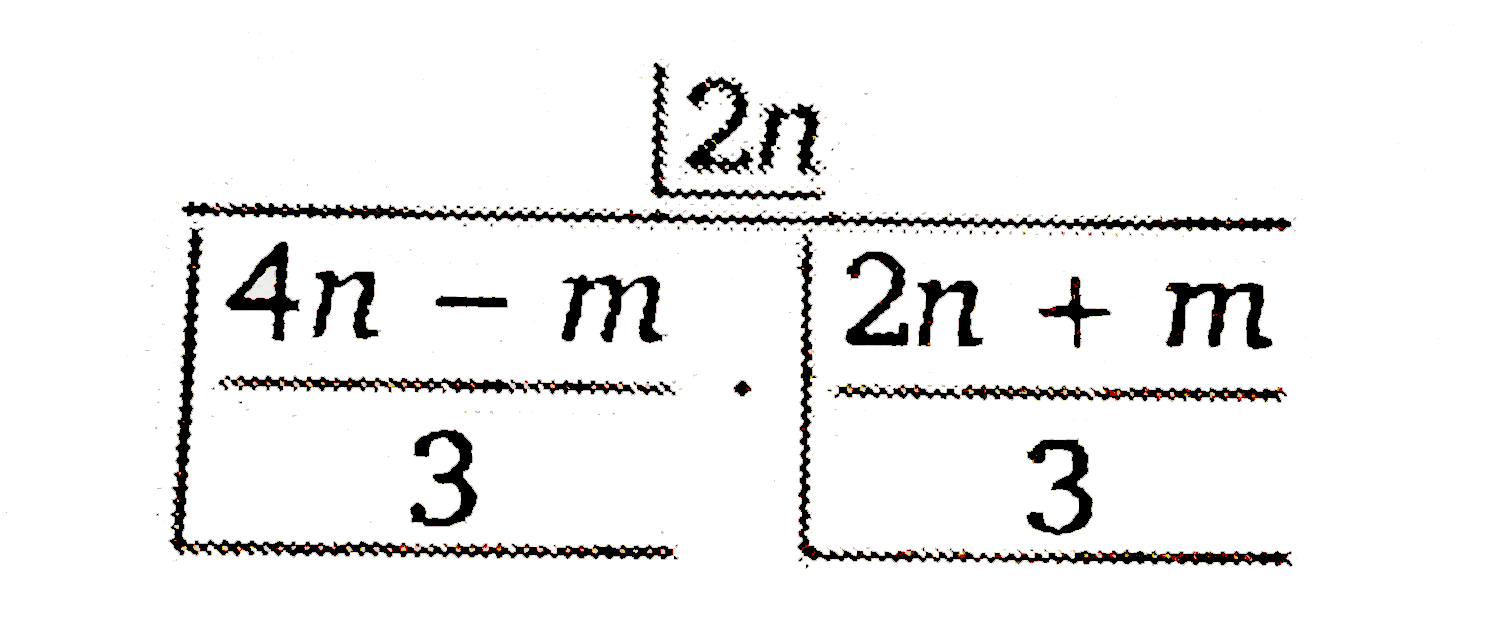Let m be the smallest positive integer such that the coefficient of x2 in the expansion of (1+x)2+(1+x)3+(1+x)4+........+(1+x)49+(1+mx)50 is (3n+1).51C3 for some positive integer n. Then the value of n is
Video Solution
Text Solution
Coefficient of x2 in expansion
=1+.3C2+.4C2+.5C2+…..+.49C2+.50C2.m2
[as .nCr+.nCr−1=.n+1Cr]
=(.3C5+.3C2)+.4C2+.5C2+….+.49C2+.50C2m2
=(.4C3+.4C2)+.....+.50C2m2
=.5C3+.50C2m2+.50C2m2
=.50C3+.50C2m2+.50C2−.50C2
=.51C3+.50C2(m2−1)
=(3n+1).51C3 (given)
∴3n.513.50C2=.50C2(m2−1)
m2−151=n
Value of n is 5.
|
Similar Questions
Knowledge Check
The coefficient of xn in the expansion of (1+x)2(1−x)3, is
An2+2n+1B2n2+n+1C2n2+2n+1D2n+2n+2
If n is a positive integer, find the coefficient of x−1 in the expansion of (1+x)n(1+1x)n.
View SolutionIf n is a positive integer, find the coefficient of x−1 in the expansion of (1+x)n(1+1x)n.
View SolutionIf 'n' is a positive integer then prove that the coefficient foxm in the expansion of (x2+1x)2n is :

View SolutionIf 'n' is a positive integer then prove that the coefficient foxm in the expansion of (x2+1x)2n is :

View SolutionIf 'n' is a positive integer then prove that the coefficient foxm in the expansion of (x2+1x)2n is :

View SolutionIf 'n' is a positive integer then prove that the coefficient foxm in the expansion of (x2+1x)2n is :

View Solutionif n is a positive integer, find the co-efficient of xn in the expansion of (3x−2)n(1−x)2
View Solution
